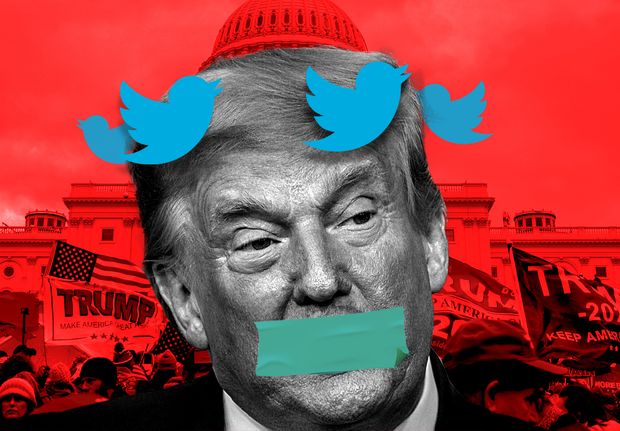By Aicco Sapi
Donald Trump will surely be remembered as the President who did most of his governing on Twitter. The former US president certainly did not shy away from the spotlight. If anything, he welcomed it. His zealousness went as far as him holding the record for the most tweets tweeted in a day, a staggering 200 tweets/retweets on June 05, 2020. His lengthy tweet sessions didn’t leave much to the imagination, anyone in his vicinity could end up being a target of his rampage. There is truly no denying that social media platforms played an integral role prior to and during Trump’s reign as president. Some would even go as far as to say Facebook elected the 45th president of the United States.
However, as always, all good things must come to an end. And for Trump, social media governing came to an end on January 6th 2021, when he incited a mob of his dedicated followers to infiltrate the US Capitol. Twitter took the lead by putting his account under temporary lock for 12 hours, which was later extended to a suspension. Facebook followed by closing his account indefinitely, which caused a spill over effect on other social platforms, including Spotify, Twitch, Shopify, Pinterest, and many more. This cause of action roused questions on whether social platforms were infringing on free speech and the censorship of opposing views. Although we know Trump to be one of the infamous social media antagonists, the aforementioned questions still hold merit when it comes to how all these companies will approach and deal with the online content of not only influential figures but also everyday people in the future.
For many of his supporters, such as White House spokesman Judd Deere, Trump’s speech is viewed as critical and necessary to share, therefore the shutting down of his accounts is seen as a move by big tech companies and the left to silence the true patriots of the country. Furthermore, a number of conservatives have called out the legitimacy of the social platforms community guidelines and policies. References were made of controversial figures who are still able to keep their social platforms, even after sharing content that could be seen as violating such guidelines. For instance, the supreme leader of Iran who has made violent threats towards other countries through Twitter and a number of Chinese officials who have partaken in spreading fallacies about the pandemic.
On the other hand, some have criticized the social platforms for acting a little bit too late. Many berated the social media companies for allowing misinformation and malfeasance to be spread for so long. One Senator even went as far as to say that companies such as Facebook and Twitter collaborated with Trump in assaulting democracy. This is certainly not the first time that tech companies have come under fire for not flagging or stopping the spread of factitious information on their platforms. In 2018, CEO of Facebook, Mark Zuckerberg, faced the US congress in regard to the Cambridge Analytica scandal, where a political consulting and strategic communication firm was able to access the private information of more than 50 million Facebook users and run targeted pro – Brexit and pro – Trump ads to them. There have also been several follow-ups on how the spread of fake news is dealt with by Facebook and Twitter, seeing as they hadn’t yet employed any fact-checking tags.
The topic of censorship and free speech, for this particular instance, has struck some polarizing views, however, it would not be fair to boil it down to such a conclusion. For starters, all the aforementioned platforms had allowed Trump to participate in slander and the spread of false information without any major repercussions for a long period of time. Furthermore, this is not the first time that influential figures with radical content have been banned from social platforms – it’s called deplatforming. Deplatforming is the act of removing harmful speakers or speech from venues that are used to spread such information. In 2016, Milo Yiannopoulos, a far-right extremist, was caught rationalizing paedophilia. After that his social media accounts were shut down. The same thing happened to numerous ISIS sympathizer accounts on Twitter and Facebook.
Whilst conservatives make some reasonable points, it is difficult to ignore the magnitude of what the former US president had cajoled within his supporters. Nevertheless, I find the reaction of social platforms towards Trump to be justified, as he did repeatedly breach their community guidelines. Moreover, such actions of deplatforming are needed in order to prevent violent breakouts, that are most of the times instigated through social media, from happening. The right to free speech cannot be used to protect violence.
